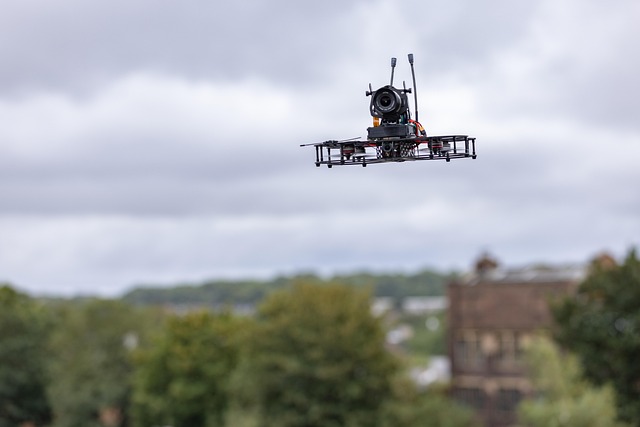# Advancements in AI Technology: Shaping Industries and Enhancing Daily Life in Unprecedented Ways
Artificial Intelligence (AI) has emerged as a transformative force across various sectors, fundamentally altering how businesses operate and how individuals engage with technology in their daily lives. As we delve into the advancements in AI technology, it becomes evident that its applications are vast and varied, reshaping industries and enhancing the quality of life in ways previously thought to be the realm of science fiction.
## Revolutionizing Industries Through Automation
One of the most significant impacts of AI technology can be observed in the realm of automation. Industries such as manufacturing, logistics, and healthcare are witnessing a paradigm shift as AI-driven automation streamlines operations and boosts efficiency. For instance, robotic process automation (RPA) is increasingly utilized to handle repetitive tasks, allowing human workers to focus on more strategic activities. In manufacturing, AI-powered robots can now perform complex assembly tasks with precision, reducing errors and increasing production rates.
In the logistics sector, AI algorithms optimize supply chain management by predicting demand, managing inventory, and enhancing route optimization. Companies like Amazon and FedEx have integrated AI into their logistics operations, leading to faster delivery times and improved customer satisfaction. Furthermore, the healthcare industry is experiencing a transformation with AI technologies that assist in diagnostics, personalized medicine, and patient monitoring. Machine learning algorithms analyze vast amounts of medical data, enabling healthcare professionals to make informed decisions and improve patient outcomes.
Equally important is the role of AI in financial services, where it enhances fraud detection and risk management. Financial institutions leverage machine learning models to analyze transaction patterns, identifying anomalies that may indicate fraudulent activity. Consequently, the speed and accuracy of fraud detection have improved significantly, safeguarding both businesses and consumers.
## Enhancing Daily Life Through Personalization
Beyond industrial applications, AI is increasingly influencing everyday life, particularly through personalization. The algorithms that power social media platforms, e-commerce sites, and streaming services have fundamentally changed how individuals interact with digital content. By analyzing user behavior and preferences, AI systems can deliver tailored recommendations that enhance user experiences.
Streaming services like Netflix and Spotify utilize sophisticated recommendation engines to suggest content based on individual viewing or listening habits. This personalization not only keeps users engaged but also introduces them to new content they may not have discovered otherwise. Similarly, e-commerce platforms such as Amazon employ AI to create personalized shopping experiences, displaying products that align with a customer’s previous purchases and browsing history. This targeted approach not only boosts sales for businesses but also streamlines the shopping experience for consumers.
Moreover, AI-driven virtual assistants, such as Amazon’s Alexa and Apple’s Siri, have become integral to many households. These assistants leverage natural language processing (NLP) to understand and respond to user commands, making everyday tasks more manageable. From setting reminders to controlling smart home devices, AI enhances convenience and efficiency in daily routines. The integration of AI into personal devices has redefined how individuals manage their time and interact with technology, creating a more seamless and intuitive experience.
## Addressing Societal Challenges with AI Solutions
While the advancements in AI technology present numerous opportunities, they also offer solutions to some of the most pressing societal challenges. Environmental sustainability is one area where AI is making significant strides. Machine learning algorithms analyze climate data to predict environmental changes and optimize resource management. For example, AI is utilized in precision agriculture, where it helps farmers make data-driven decisions regarding irrigation, fertilization, and pest control. This not only increases crop yields but also minimizes environmental impact by reducing waste and conserving resources.
In addition, AI is being deployed to enhance public safety and security. Law enforcement agencies utilize predictive policing algorithms to analyze crime data and allocate resources more effectively. By identifying patterns and trends, AI can help law enforcement agencies deploy personnel to areas where crime is likely to occur, ultimately enhancing community safety. However, this application of AI raises ethical considerations regarding privacy and bias, necessitating ongoing discussions about the responsible use of technology.
Healthcare disparities are also being addressed through AI solutions. Telemedicine platforms powered by AI enable remote consultations, making healthcare more accessible to individuals in underserved areas. Moreover, AI-driven diagnostic tools can assist healthcare providers in identifying diseases early, improving treatment outcomes for patients. By bridging gaps in healthcare access, AI has the potential to contribute to a more equitable healthcare system.
## Conclusion: The Future of AI Technology
As we continue to witness advancements in AI technology, its influence on industries and daily life will only grow. The potential for automation to enhance productivity, the personalization of user experiences, and the ability to address societal challenges are just a few examples of how AI is reshaping our world. However, it is crucial to navigate the ethical implications and challenges that accompany these advancements.
Moving forward, collaboration between technologists, policymakers, and society will be essential in ensuring that AI technology is developed and deployed responsibly. By fostering an environment that prioritizes ethical considerations, we can harness the full potential of AI to create a future that benefits all. In doing so, we can ensure that the advancements in AI technology not only shape industries but also enhance daily life in unprecedented and meaningful ways.











